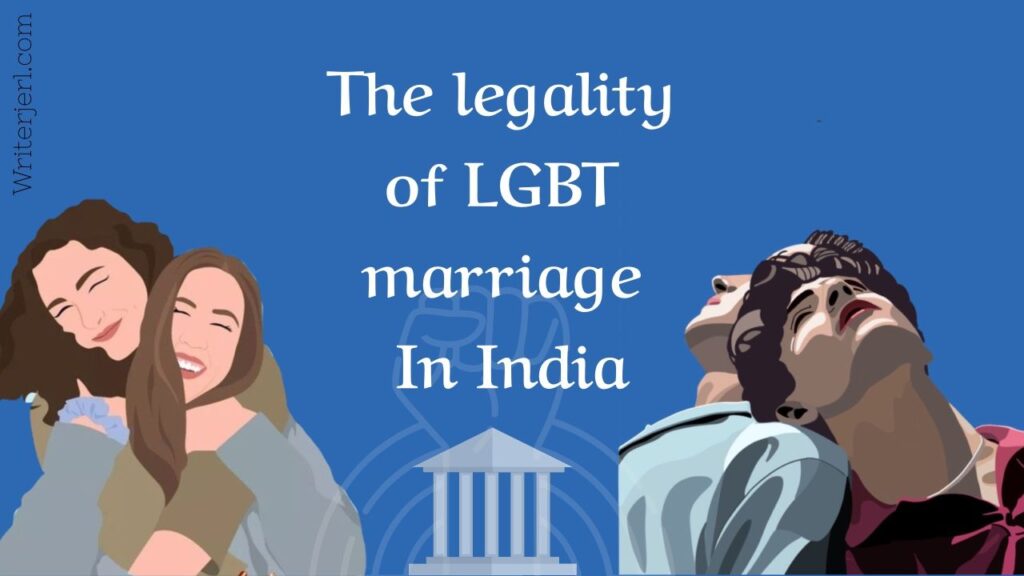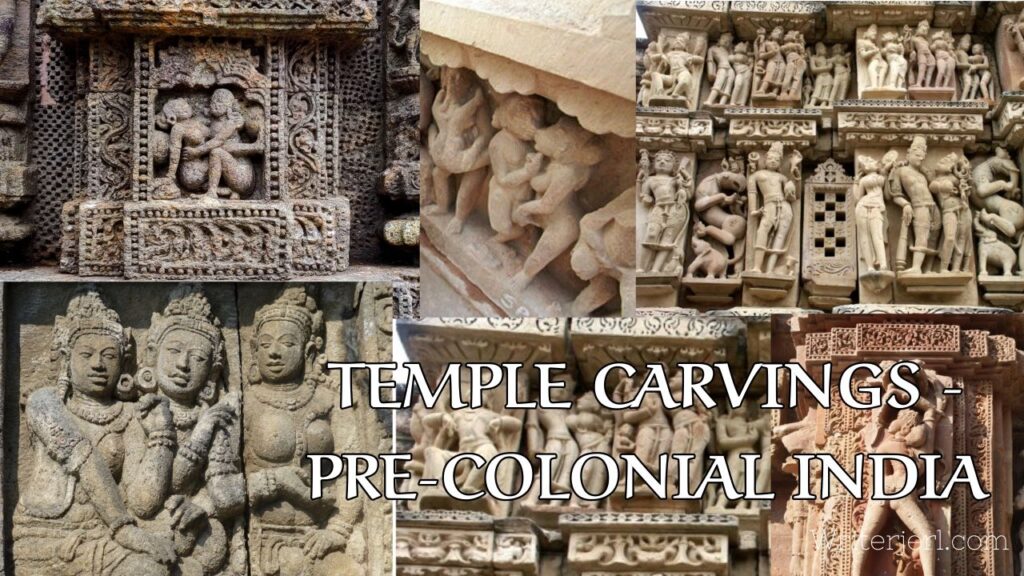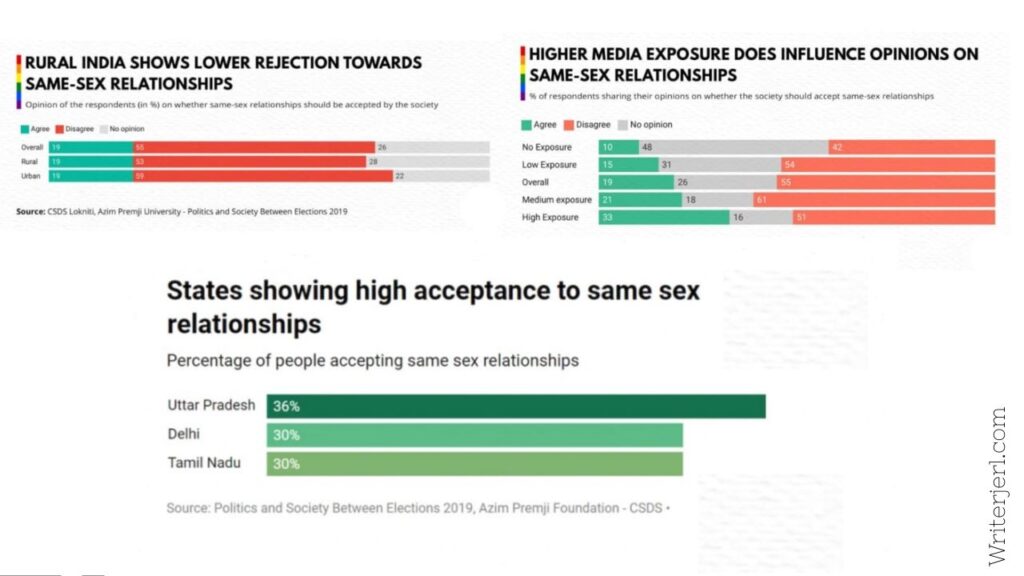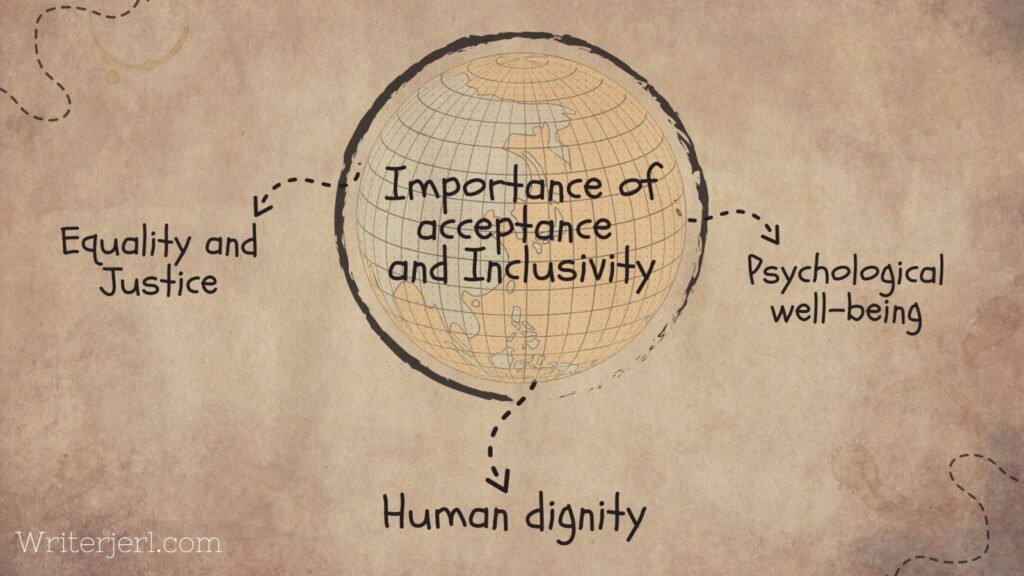Fem-anger-unfold-026

Definition of LGBT Marriage
LGBT marriage, also known as same-sex marriage or marriage equality, refers to the legally recognised union between two individuals of the same gender or sexual orientation. It includes the right of lesbian, gay, bisexual, and transgender (LGBT) individuals to marry and have their marriages legally recognised by the state.
Historical context of LGBT rights in India
Historical texts and art suggest that pre-colonial India had a more fluid understanding of gender and sexuality, with mentions of same –sex relationships in ancient texts like the Kama sutra and temple carvings depicting diverse sexuality and genders. After gaining independence in 1947, India largely retained colonial-era laws, including section 377. Despite efforts by some activists and lawmakers to repeal or amend this law, it remained largely unchallenged for decades. The late 20th century saw the emergence of LGBT activism in India. In 2018, the supreme court of India declared that section 377 was unconstitutional to the extent that it criminalised consensual same-sex relationships among adults, effectively decriminalising homosexuality in India. India still lacks specific legislation recognising same-sex marriage or providing complete legal protection for LGBT individuals.

Legal status of LGBT marriage in India
India does not have any specific laws or regulations that recognise or legalise same-sex marriage. The legal framework governing marriage in India is based on traditional norms and laws that define marriage as a union between a man and a woman. While same-sex relationships were decriminalised in India following the landmark Navtej Singh Johar V. Union of India case in 2018, this ruling did not address the issue of marriage equality. The Supreme Court’s decision in this case struck down parts of section 377 of the Indian Penal Code.
Impact on LGBT individuals and relationships
The legal status of same-sex marriage, or lack thereof, in India has significant impacts on LGBT individuals and their relationships. Some LGBT couples in India have explored alternative options, such as getting married in countries where same-sex marriage is legal and seeking recognition of their marriages in India. The denial of legal recognition and societal validation for their relationships may contribute to feelings of invisibility, invalidation, and insecurity, impacting their self-esteem, mental health, and overall quality of life.
Effect on the legal status of LGBT relationships
Unlike heterosexual couples, they cannot legally marry nor have their marriages recognised by the state including inheritance rights, healthcare, decision making, and spousal benefits. The absence of laws openly addressing in accessing services, benefits and rights that are typically associated with marriage.
Lack of specific legislation on LGBT marriage
The definition of India’s legal framework for marriage is reflected in various personal laws governing marriage, such as the Hindu Marriage Act, and the Special Marriage Act. Despite the lack of specific legislation, there have been ongoing advocacy efforts and legal challenges advocating for marriage equality in India. Various LGBT rights organisations, activists, and legal experts continue to push for legal reforms to recognise and protect the rights of LGBT individuals and couples.
Absence of laws recognising same-sex marriage
The absence of laws recognizing same-sex marriage in India stands in contrast to developments in other experts of the world where marriage equality has been recognized through legislative reforms or court decisions. India’s stance on same-sex marriage is influenced by its legal, cultural, and societal contexts, as well as broader debates on human rights and equality.
Implications for LGBT couples
The lack of spousal rights can have implications for healthcare decision making and end of life care for LGBT couples. Without legal recognition, partners may encounter challenges in making medical decisions for each other, accessing healthcare benefits, or being recognized as next-of-kin in critical situations. This can lead to complications and disputes during medical emergencies.
Legal challenges and activism
Legal challenges are often initiated through strategic litigation aimed at challenging discriminatory laws, policies, and practices that infringe upon the rights of LGBT individuals and couples. International human rights organizations, legal experts, and advocacy groups often provide support and collaboration in legal challenges and activism for LGBT rights in India. This may involve sharing expertise, resources, and best practices, as well as advocating for the protection of LGBT rights at the international level.

Efforts by LGBT rights organisations
LGBT rights organizations engage in strategic litigation to challenge discriminatory laws and policies, including section 377 of the Indian Penal Code and other laws that infringe upon the rights of LGBT individuals. LGBT rights organizations conduct public awareness campaigns and educational initiatives to raise awareness about issues affecting LGBT individuals and communities. They work with policymakers, lawmakers, government institutions, and international human rights bodies to advocate for legislative reforms, policy changes, and the protection of LGBT rights.
Challenges and controversies surrounding parenting rights
Discrimination, lack of cultural competence, and limited availability of LGBT-friendly services can pose challenges for LGBT families in accessing services for themselves and their children. LGBT parents may face challenges in establishing legal guardianship and custody rights, particularly in cases of co-parenting arrangements, non-biological parentage, or separation and divorce. The lack of clear legal frameworks and pattern regarding LGBT parenting can complicate matters related to child custody, visitation rights, and parental responsibilities.
Traditional attitudes towards marriage and family
Traditional gender roles and expectations shape marriage and family dynamics in Indian society. While there are variations across regions and communities, women are often expected to assume domestic roles such as care giving, home making, and child rearing, while men are typically viewed as providers and protectors of the family. These gender roles influence marital expectations and divisions of labor within the household.
Arranged marriage is a prevalent practice in India, where families play a significant role in match-making and arranging marriages between individuals.
Societal acceptance and discrimination against LGBT individuals
Societal acceptance and discrimination against LGBT individuals in India is complex and vary across different regions, communities, and socio-cultural contexts. There is often a stark contrast in attitudes towards LGBT individuals between urban and rural areas. Urban centers, particularly metropolitan cities, tend to be more diverse, cosmopolitan, and liberal, fostering greater acceptance and visibility of LGBT communities. In contrast, rural areas may be more conservative and traditional, with stronger adherence to traditional gender norms and societal expectations. LGBT identities may be stigmatizes, misunderstood, or marginalized within traditional cultural frameworks.
Importance of social acceptance
Societal acceptance and inclusivity are crucial for fostering a fair, just, and harmonious society where all individuals feel valued, respected and empowered to live authentically. Here are some reasons why societal acceptance and inclusivity are important.

Human dignity
Every individual deserves to be treated with dignity and respect, regardless of their background, identity, or characteristics. Societal acceptance affirm the inherent worth and value of each person, promoting a sense of belonging and validation of one’s identity and experiences.
Equality and justice
Societal acceptance and inclusivity are fundamental to achieving equality and justice for all individuals. Embracing diversity and recognizing the rights and humanity of every person contribute to creating a more equitable society where everyone has equal opportunities, access to resources, and protection under the law.
Psychological well-being
Feeling accepted and included in society is essential for individual’s psychological well-being and mental health.
Sum-up
There is growing drive globally towards recognising same-sex marriage as a fundamental right. Future legal reforms in India may include the introduction of legislation clearly recognising and legalising same-sex marriage, thereby granting LGBT couples access to the legal rights, protections, and benefits associated with marriage.
India’s commitments under international human rights treaties, including the universal declaration of Human rights and the international contract on civil and political rights, may provide impulsion for legal reforms to ensure the protection and promotion of LGBT rights as part of its obligations to uphold human rights principles. Continued support and dialogue are essential in driving forward legal reforms that uphold the right and dignity of all individuals, regardless of sexual orientation of gender identity.
Disclaimer: it’s a safe space. This content embraces and supports the LGBTQ+ community wholeheartedly. Everyone is welcome here, regardless of who you love or how you identify. Let’s spread love, respect, and acceptance together.
I¦ll right away seize your rss as I can not find your email subscription hyperlink or newsletter service. Do you’ve any? Please permit me recognise so that I may just subscribe. Thanks.
Thank you for your interest! I appreciate you wanting to stay updated. Currently, I don’t have an email subscription or newsletter service, but I’ll definitely consider adding one in the future. In the meantime, feel free to follow my RSS feed for updates. If you have any other questions, just let me know!
I don’t think the title of your article matches the content lol. Just kidding, mainly because I had some doubts after reading the article.